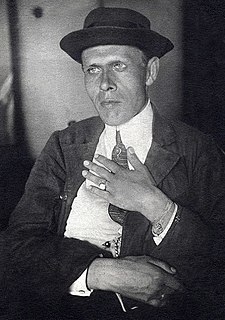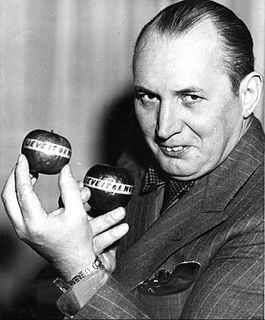A Quote by Richard Matheson
He stood there for a moment looking around the silent room, shaking his head slowly. All these books, he thought, the residue of a planet’s intellect, the scrapings of futile minds, the leftovers, the potpourri of artifacts that had no power to save men from perishing.
Related Quotes
He had handed his daughter to Caroline Gill and that act had led him here, years later, to this girl in motion of her own, this girl who had decided yes, a brief moment of release in the back of a car, in the room of a silent house, this girl who had stood up later, adjusting her clothes, with now knowledge of how that moment was already shaping her life.
Surely there had been no figure leaning on the back of his chair; no face looking over it. It is certain that no gliding footstep touched the floor, as he lifted up his head, with a start, and spoke. And yet there was no mirror in the room on whose surface his own form could have cast its shadow for a moment; and, Something had passed darkly and gone!
Is there anything on earth which would have meaning and would even change the course of events not only on earth, but in other worlds?” I asked my teacher. “There is,” my teacher answered me. “Well, what is it?” I asked. “It’s...” began my teacher and suddenly fell silent. I stood and waited intently for his answer. But he was silent. And I stood and was silent. And he was silent. And I stood, silent. And he was silent. We’re both standing and silent. Ho-la-la! We’re both standing and silent. Ho-le-le! Yes, yes, we’re both standing and silent! 16-17 July 1937
His books were part of him. Each year of his life, it seemed, his books became more and more a part of him. This room, thirty by twenty feet, and the walls of shelves filled with books, had for him the murmuring of many voices. In the books of Herodotus, Tacitus, Rabelais, Thomas Browne, John Milton, and scores of others, he had found men of face and voice more real to him than many a man he had met for a smoke and a talk.
Last night I thought about all the kerosene I've used in the past ten years. And I thought about books. And for the first time I realized that a man was behind each one of the books. A man had to think them up. A man had to take a long time to put them down on paper. And I'd never even thought that thought before...It took some man a lifetime maybe to put some of his thoughts down, looking around at the world and life, and then I come along in two minutes and boom! it's all over.
Will nodded slowly, then looked up at tha black sky. "The stars", he said. "I have never seen them so bright. The wind has blown off the fog, I think." Magnus thought of the joy on Will's face as he had stood bleeding in Camille's living room, clutching the demon tooth in his hand. Somehow I don't think it's the stars that have changed.
I turned around slowly, and looked up at him. He stiffened and sucked in a shallow breath. After a moment, he touched my cheek. "Such naked pain," he whispered. I turned my face into his palm and closed my eyes. His fingers threaded into my hair, cupped my head, and brushed the brand. It heated at his touch. His hand tightened at the base of my skull and squeezed, and he raised me slowly to my tiptoes. I opened my eyes and it was my turn to inhale sharply. Not human. Oh, no, not this man. "Never show it to me again." His face was cold, hard, his voice colder.
It is all, as usual, paradox. I have to use what intellect I have in order to write books, but I write the kind of books I do in order that I may try to set down glimpses of things that are on the other side of the intellect. We do not go around and discard the intellect, but we must go through and beyond it.
What is a great love of books? It is something like a personal introduction to the great and good men of all past times. Books, it is true, are silent as you see them on their shelves; but, silent as they are, when I enter a library I feel as if almost the dead were present, and I know if I put questions to these books they will answer me with all the faithfulness and fulness which has been left in them by the great men who have left the books with us.
He was the meekest of his sex, the mildest of little men. He sidled in and out of a room, to take up the less space. He walked as softly as the Ghost in Hamlet, and more slowly. He carried his head on one side, partly in modest depreciation of himself, partly in modest propitiation of everybody else.

































